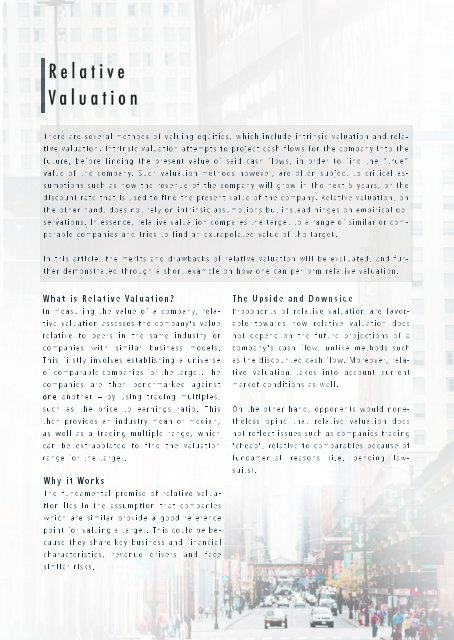NUS Investment Society Year Book 2018
Established in 2003, National University of Singapore Investment Society (“NUS Invest”) is the only conglomeration of student investment enthusiasts throughout the faculties of the university. NUS Invest is a student initiative that provides the key platform for NUS students and other student investment enthusiasts to unite and expand their financial and investment knowledge. NUS Invest aims to provide the key platform that facilitates exchange of knowledge and provide growth opportunities for the development of students dedicated to pursuing a career in the business world. Understanding that the finance and investment world is ever-evolving and that knowledge is boundless, it is the Society’s emphasis to nurture dedicated students who are determined to excel in this industry by empowering them with the relevant skills and knowledge valued by qualified professionals as well as providing the opportunities to build connections.
Established in 2003, National University of Singapore Investment Society (“NUS Invest”) is the only conglomeration of student investment enthusiasts throughout the faculties of the university. NUS Invest is a student initiative that provides the key platform for NUS students and other student investment enthusiasts to unite and expand their financial and investment knowledge.
NUS Invest aims to provide the key platform that facilitates exchange of knowledge and provide growth opportunities for the development of students dedicated to pursuing a career in the business world. Understanding that the finance and investment world is ever-evolving and that knowledge is boundless, it is the Society’s emphasis to nurture dedicated students who are determined to excel in this industry by empowering them with the relevant skills and knowledge valued by qualified professionals as well as providing the opportunities to build connections.
You also want an ePaper? Increase the reach of your titles
YUMPU automatically turns print PDFs into web optimized ePapers that Google loves.
There are severalmethodsofvaluing equities,which include intrinsic valuation and relative<br />
valuation.Intrinsicvaluation attemptsto projectcash flowsforthe companyinto the<br />
future,before finding the presentvalue ofsaid cash flows,in orderto find the “true”<br />
value ofthe company.Such valuation methods however,are often subjectto criticalassumptionssuch<br />
ashow the revenue ofthe company willgrow in the next5 years,orthe<br />
discountrate thatisused to find the presentvalue ofthe company.Relative valuation,on<br />
the otherhand,doesnotrelyon intrinsicassumptionsbutinstead hingeson empiricalob<br />
servations.In essence,relativevaluation comparesthetargetto arangeofsimilarorcomparable<br />
companiesand triesto find an extrapolated value ofthe target.<br />
In thisarticle,the meritsand drawbacksofrelative valuation willbe evaluated,and furtherdemonstrated<br />
through a shortexample on how one can perform relative valuation.<br />
WhatisRelativeValuation?<br />
InIn measuring the value ofa company,relative<br />
valuation assessesthe company'svalue<br />
relative to peers in the same industry or<br />
companies with similar business models.<br />
This firstly involves establishing a universe<br />
ofcomparablecompaniesforthetarget.The<br />
companies are then benchmarked against<br />
one another – by using trading multiples,<br />
such as the price to earnings ratio. This<br />
then provides an industry mean ormedian,<br />
as wellas a trading multiple range,which<br />
can be extrapolated to find the valuation<br />
range forthe target.<br />
WhyitWorks<br />
The fundamentalpremise ofrelative valuation<br />
lies in the assumption that companies<br />
which are similarprovide a good reference<br />
pointforvaluing a target.Thiscould be because<br />
they share key businessand financial<br />
characteristics, revenue drivers and face<br />
similarrisks.<br />
The Upside and Downside<br />
Proponents of relative valuation are favorable<br />
towards how relative valuation does<br />
not depend on the future projections of a<br />
company's cash flow, unlike methods such<br />
asthediscounted cash flow.Moreover,relative<br />
valuation takes into account current<br />
marketconditionsaswell.<br />
On the otherhand,opponents would nonetheless<br />
opine that relative valuation does<br />
notreflectissuessuch ascompaniestrading<br />
'cheap',relative to comparablesbecause of<br />
fundamental reasons (i.e. pending lawsuits).


